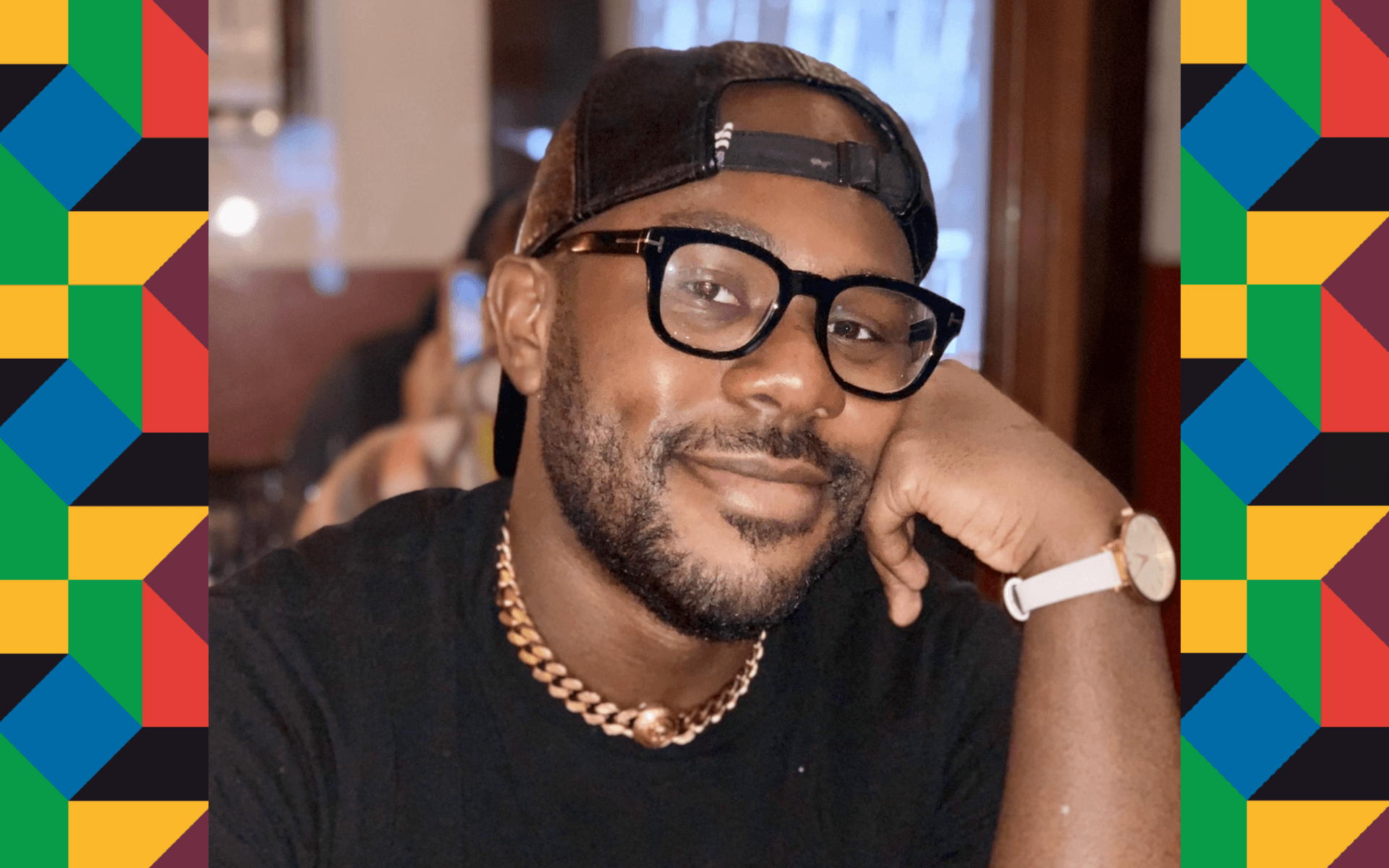Culture
Meet Akinyele Akinruntan, an HR Business Partner Whose Passion for DEI Is a Perfect Fit for the 2U Mission
Written by Black Engagement Network (BNet) on Feb 23, 2022
Related content: Diversity And Inclusion, Life at 2U

EDITOR’S NOTE: Throughout February, in celebration of Black History Month, our “A Day in the Life” series highlights members of 2U’s Black Engagement Network (BNet).
~~~
Akinyele Akinruntan joined edX at a very interesting time—last June, the same month that 2U and edX announced its plans for an industry-redefining combination, and the same month that 2U announced the expansion of its Netflix Pathways Bootcamp to more Historically Black Colleges and Universities (HBCUs) and Hispanic-Serving Institutions (HSIs). Based out of edX’s office in Cambridge, MA, Akinyele immediately felt the excitement of these new synergies in his role as an HR business partner focused on diversity, equity, and inclusion (DEI).
“Because of the company culture, mission statement, and civic engagement, I knew that working here would allow me to push tenants like DEI and belonging forward in a way that would best serve employees, students, and other outside stakeholders,” he says. “I love the strides already taken in terms of creating access to opportunities for learners from historically underrepresented populations. Partnering with HBCUs and HSIs shows intentionality and a willingness to ensure that others are given chances to make a difference in the world.”
Akinyele has a wealth of experience in the access space, too. He has worked in an HR capacity for a variety of organizations, including a public health management firm dedicated to improving the health of underserved people and communities. He’s also on the associate board of directors for Boston Cares, the largest nonprofit organization in New England.
“Giving others access to spaces that they may normally not be able to enter is important to me,” Akinyele says. “The current position of our company excites me about the future of accessing higher education. What we’re doing now will lay the foundation for other companies and institutions of learning. These efforts, both in the short term and long term, will have long-lasting effects on communities that previously wouldn’t have been able to fathom such opportunities.”
To welcome him as one of our newest members, BNet connected with Akinyele to learn more about his role in HR, the challenges and opportunities he sees in the realm of DEI, and what Black History Month means to him.

Welcome to the BNet family, Akinyele! We’re over the moon you’re here. For starters, how would you describe your work in HR—and how are you applying your passion and experience to supporting the company’s mission?
My role is very strategic in nature. I try to adopt a consultative approach when I work with employees. My day-to-day varies; the dynamic nature keeps things exciting and enables me to showcase my ability to be flexible and easily adaptable to any situation.
I have a passion for being a cultural advocate. Likewise, employment law and compliance fascinate me, and I try to always be mindful of these aspects of HR when I partner and counsel leaders and employees. My goal is to always ensure I do what’s best for both the employee and business.
We love that term, “cultural advocate.” Specifically, what excites you most about working on DEI at the company?
The work is meaningful and instrumental in a business’s success in the long term. Research for years has showcased that having a more diverse organization, from the bottom to the top, ties back to a company’s success financially. Likewise, considering the job market has been more in favor of the job seeker for some time, ensuring our company is focused on DEI lets us attract more high-quality talent. These things are important because there have been disparities in this area across companies for decades. Focusing on DEI has to be done in a strategic way; when it’s made a priority, it shows employees that companies care about the personal and professional development of their people, especially those of color.
Absolutely, and this conversation we’re having is just one of the many ways the company is showing DEI is a priority. Why is it important for organizations to cultivate a more diverse, equitable, and inclusive workplace? And what do you see as the biggest challenges and opportunities in this field?
The biggest challenges right now involve intentionality, language, education, and overall short and long-term value. DEI has often been treated as a reactive response to societal events, but this work must be done in a way that benefits all parties now and into the future.
Most dishearteningly, many companies only tackle DEI from a hiring perspective by bringing in diverse talent at the more junior levels. However, DEI and hiring must be done at the senior and C-suite levels. Employees at the junior levels need this representation to feel more empowered to achieve their goals. A lack of diversity at the top tells employees that their company has little to no desire to have diverse perspectives. It also shows employees that, unless you identify with the dominant culture phenotypically, you won’t be able to advance in the organization.

“Phenotype”: someone’s observable traits like height, the sound of their voice, and skin color. Everyone should know that word! Now that you’re a member of BNet, what are you most looking forward to doing in our community?
I’m excited to actively listen, see, and experience what’s been done historically at the company. Likewise, I’m excited to partner with leaders in Marketing, Global Partnerships, and throughout the business to ensure strategic alignment in terms of goals with BNet. I want to help ensure that all efforts, even those of a more colloquial nature, are meant to serve as teachable moments and can tie back into annual company goals.
Yes, every day is filled with dozens of teachable moments, no matter how much we all think we know. As Black History Month, February, in particular, is filled with many special ones. How is this observance personally meaningful to you, and how does it inspire your work?
This month has always been important to me, although I celebrate Black history all 365 days of the year. Strategically, I think it’s important to use February to highlight achievements accomplished by those from the Black diaspora. It inspires my work because I’m from the American south, Tennessee to be specific. Fifty years ago, I wouldn’t have been able to do any of the things I currently do. My grandmother on my mother’s side was a housekeeper for the majority of her life for more affluent families. Her parents were slaves and sharecroppers. It’s important to me to do the work I do because I want to lay a foundation for other Black women and men who’ll come behind me, and that reinforces my persistence.
Black History Month will always be important to me because many people—and I say this with humility—haven’t had the access I’ve been afforded in my life for a multitude of reasons. It’s my job, and I see it as my duty to do this work for those without agency, and for my ancestors who couldn’t even imagine being in some of the spaces I’m currently able to be in.
Beautiful—that continuum of honoring who has come before you by paying it forward. Let’s close with a little reflection. Since last June is still probably fresh in your mind, what insight do you wish your “more seasoned” self now could go back and tell your “newbie” self?
I wish I knew more about the company culture. Understanding where the gaps are, and which personalities permeate the culture, enables me to do my job in a more meaningful way. Knowing the company’s general three-to-five-year corporate responsibility plan enables me to help others adjust their goals in ways that set them up for success. I’d also advise newcomers to ask more questions and be more solution-oriented. That goes a long way!
~~~
Meet more BNet members: a brand strategy director, a senior student success manager, an implementation manager, a program director, and a curriculum manager who’s now the global chair of BNet.